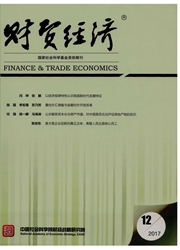

 中文摘要:
中文摘要:
作为新型的货币政策调控方式,利率走廊在理论上被认为具有调控短期市场利率运行,降低短期市场利率波动的作用。本文在理论分析基础上,从三个方面实证检验了该结论与现实是否契合。结果显示:实行利率走廊国家的短期市场利率波动率低于未实行国家;同一国家实行走廊机制后短期市场利率波动率低于实行前;走廊区间越小,短期市场利率的波动率越小;利率走廊可以降低短期市场利率对宏观经济变量冲击的敏感度,从而验证了利率走廊可以降低短期市场利率波动的结论。利率走廊在未来将成为中国货币政策的调控方式之一,本文的研究可以为今后的货币政策选择提供一定的参考和依据。
 英文摘要:
英文摘要:
As a new monetary policy tool, interest rate corridor regime is regarded as an automatic stabilizer against the volatility of interest rates. Based on the theoretical study, this paper tries to confirm this conclusion from the following three aspects. Firstly, we find that the interest rate volatility of countries which have implemented interest rate corridor regime is lower than the countries which have not implemented the regime. And as for the countries which have implemented the regime, the interest rate volatility is lower than before. Furthermore, the narrower the countries' interest rate corridor spreads are, the slighter interest rates volatility will be. Finally, interest rate corridor regime can lower the sensitivity of interest rate on the shock of maeroeconomic variables, so as to confirm the result that interest rate corridor regime can mitigate interest rates volatility. As China's economy develops, interest rate corridor regime will be an important approach of monetary policies. The study of this paper can provide a valuable reference for policy makers.
 同期刊论文项目
同期刊论文项目
 同项目期刊论文
同项目期刊论文
 期刊信息
期刊信息
